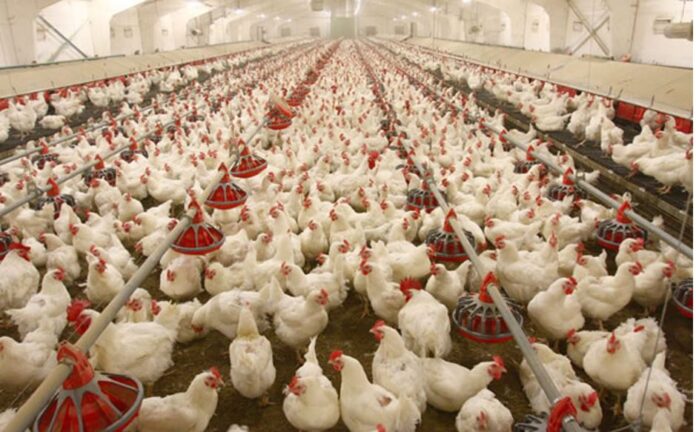High feed prices closing down, cost of chickens and eggs shooting up
By Jeph Ajobaju, Chief Copy Editor
Poultry farmers are closing down business because of rising prices of maize and other feed ingredients for raising chickens and eggs, vital daily sources of protein for individuals and households across the country.
The Poultry Association of Nigeria (PAN) raised the alarm the sector will crash totally if the government fails to intervene.
“At the moment, the poultry industry in Nigeria is on the verge of total collapse if urgent intervention is not channelled to it without further delay.
“We are aware that the government has declared a state of emergency on the food security situation of the country, but the situation of the poultry industry calls for an urgent intervention to save the industry from total collapse,” PAN National President Sunday Ezeobiora and Director General Onallo Akpa pressed in a statement they jointly signed.
“The high surge in the price of maize and the near absence or scarcity of the product is causing farmers to close down their poultry farms at the moment because it is no longer sustainable to feed the birds and be in business.
“This is threatening the further development of the Nigerian poultry industry.”
The price of eggs has risen 118.34 per cent after maize importation fell 97.91 per cent.
National Bureau of Statistics (NBS) data shows the price of a medium sized “agric egg” increased from N40.84 in May 2020 to N89.17 in May 2023.
Nigeria’s maize imports dropped from $87.08 million in 2020 to $1.82 million in 2022, according to data from the International Trade Center (ITC).
Maize accounts for between 60 per cent and 70 per cent of poultry feed, and the restriction on maize imports has translated to a rise in the price of eggs.
Abuja restricted maize importation in 2020 when the Central Bank of Nigeria (CBN) added the commodity to the list of items prevented from accessing foreign exchange (forex) at official rate.
Local production has also suffered because of terrorism in the North, and the country now has 400,000 metric tonnes shortfall in maize production.
________________________________________________________________
Related articles:
Cash crunch costs poultry farmers N30b
High costs and farm insecurity likely to raise chicken price further
Manufacturers incur N67.8b cost sourcing alternative energy
_________________________________________________________________
Genesis of restriction on maize import
A circular issued in 2020 by CBN Trade and Exchange Director, OS Nnaji, said: “As part of efforts by the Central Bank of Nigeria to increase local production, stimulate a rapid economic recovery, safeguard rural livelihoods and increase jobs which were lost as a result of the ongoing COVlD-19 pandemic, authorised dealers are hereby directed to discontinue the processing of Forms M for the importation of maize/corn with immediate effect.”
The government later gave concessions to four companies – Premier Feeds, Mills Wacot, Chi Farms, and Crown Flour – to import 262,000 tonnes of maize because of its importance to the poultry industry.
“The increase in the price of eggs is due to the cost of feeds. Almost every week, the cost of feeds rises,” a poultry farmer, Azeez Gbadamosi, recounted to The PUNCH.
“Also, there is the cost of medication, transportation, and others too. The cost of feeds is majorly increasing because of the cost of maize; you know maize makes up more than 50 per cent of the feed.
“The cost of maize is on the rise because local production has really been hindered.”
Another farmer, who is also a veterinary doctor, Akintade Akintayo, equally explained the price of feeds is the major reason why egg prices are rising.
“Maize is like 60 per cent to 70 per cent of the whole feeds. The increase in the price of maize is one of the major factors.
“Maize is expensive because a few years ago, the importation of maize was [restricted]. And the bulk of the maize we use for many of our general activities, including human consumption, is imported,” said Akintayo, who operates Atade Farms.














